 Martin Eckhoff Andresen plays and organizes larps and larp-related
Martin Eckhoff Andresen plays and organizes larps and larp-related
projects based in Oslo, Norway. Among the projects he has been
involved in are: Grenselandet – Oslo International Chamber Larp
festival, Knutepunkt, the Belarusian Larpwriter Challenge and the
Larpwriter Summer School. In another life, he’s a PhD student in
Economics.
 Eliane “Lilith” Bettocchi is a professor at the Arts and Design Institute of the Federal University of Juiz de Fora (UFJF) in Brazil. Between 1991 and 2010, she was an illustrator, game designer and art director for Brazilian publishers. She also had illustrations published by US gaming companies such as Green Ronin, GenCon and Hidden City.
Eliane “Lilith” Bettocchi is a professor at the Arts and Design Institute of the Federal University of Juiz de Fora (UFJF) in Brazil. Between 1991 and 2010, she was an illustrator, game designer and art director for Brazilian publishers. She also had illustrations published by US gaming companies such as Green Ronin, GenCon and Hidden City.
 Curtis D. Carbonell, PhD teaches English as an assistant professor at Khalifa University of Science, Technology, and Research. He recently co-edited the Palgrave Handbook of Posthumanism in Film and Television (2015). He has also recently published work on Aldous Huxley with “Misreading Brave New World” and “Brave New World” in Post-and-Transhumanism: An Introduction. He is interested in how the posthuman emerges in science fiction and fantasy studies, as well as in how analog-and-digital game studies are emerging as new fields that describe complex modes of cultural production.
Curtis D. Carbonell, PhD teaches English as an assistant professor at Khalifa University of Science, Technology, and Research. He recently co-edited the Palgrave Handbook of Posthumanism in Film and Television (2015). He has also recently published work on Aldous Huxley with “Misreading Brave New World” and “Brave New World” in Post-and-Transhumanism: An Introduction. He is interested in how the posthuman emerges in science fiction and fantasy studies, as well as in how analog-and-digital game studies are emerging as new fields that describe complex modes of cultural production.
Steven Conway, PhD i s a convenor and lecturer in the Games & Interactivity program at Swinburne University of Technology. He has presented on many aspects of play, philosophy, aesthetics and culture, and has had a variety of articles published on these subjects in journals such as Convergence, Eludamos, Game Studies, Journal of Gaming & Virtual Worlds and Westminster Papers in Communication & Culture. Steven is also co-editor of the first collection in academia on Video Game Policy.
s a convenor and lecturer in the Games & Interactivity program at Swinburne University of Technology. He has presented on many aspects of play, philosophy, aesthetics and culture, and has had a variety of articles published on these subjects in journals such as Convergence, Eludamos, Game Studies, Journal of Gaming & Virtual Worlds and Westminster Papers in Communication & Culture. Steven is also co-editor of the first collection in academia on Video Game Policy.
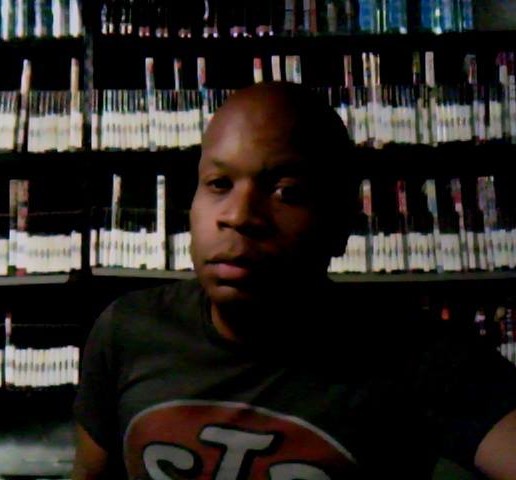 Steven Dashiell is a PhD student at the University of Maryland Baltimore County (UMBC) in the Language, Literacy, and Culture department. His dissertation research investigates masculinity constructs and cultural identity of male students who were in the military. His research interests involve the sociology of masculinity, popular culture, narrative analysis, and linguistic anthropology. He has presented his work at several conferences, including the Popular Culture Association, the American Men’s Studies Association conference, Eastern Sociological Society meeting, and the American Sociological Association. In addition to his doctoral studies, Steven works for Johns Hopkins University as a Research Coordinator. Beyond the military, Steven has done research on Bronies, tabletop, computer, and card gamers. He can be reached at steven.dashiell@umbc.edu.
Steven Dashiell is a PhD student at the University of Maryland Baltimore County (UMBC) in the Language, Literacy, and Culture department. His dissertation research investigates masculinity constructs and cultural identity of male students who were in the military. His research interests involve the sociology of masculinity, popular culture, narrative analysis, and linguistic anthropology. He has presented his work at several conferences, including the Popular Culture Association, the American Men’s Studies Association conference, Eastern Sociological Society meeting, and the American Sociological Association. In addition to his doctoral studies, Steven works for Johns Hopkins University as a Research Coordinator. Beyond the military, Steven has done research on Bronies, tabletop, computer, and card gamers. He can be reached at steven.dashiell@umbc.edu.
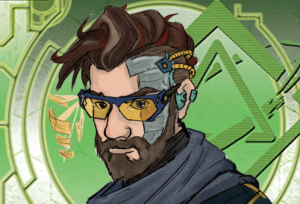 Sean C. Duncan, PhD is an Assistant Professor in the Learning Sciences at Indiana University. His work addresses learning as it is embedded within authentic play spaces, both digital and analog. With Elisabeth Gee, he was the co-editor of Learning in Video Game Affinity Spaces (published by Peter Lang in 2012). He placed a middling 67th in the Android: Netrunner North American Championships in 2016, and fantasizes about someday becoming a Shaper G-Mod.
Sean C. Duncan, PhD is an Assistant Professor in the Learning Sciences at Indiana University. His work addresses learning as it is embedded within authentic play spaces, both digital and analog. With Elisabeth Gee, he was the co-editor of Learning in Video Game Affinity Spaces (published by Peter Lang in 2012). He placed a middling 67th in the Android: Netrunner North American Championships in 2016, and fantasizes about someday becoming a Shaper G-Mod.
 Thomas Fennewald, PhD is a Postdoctoral Research Fellow at the Department of Education of Concordia University in Montréal, Québec. Tom specializes in the design and study of games about social dilemmas and climate change. He is interested in the development of methods that can be used to assess of morals and negotiation in educational, business, ecological, and political contexts, and the development of tools for promoting and assessing learning in STEM and other disciplines. Tom has a PhD in Inquiry Methodology from Indiana University Bloomington. He earned a M.Sc. in Learning and Developmental Science from Indiana University, and a B.S. in Chemistry from the Missouri University of Science and Technology.
Thomas Fennewald, PhD is a Postdoctoral Research Fellow at the Department of Education of Concordia University in Montréal, Québec. Tom specializes in the design and study of games about social dilemmas and climate change. He is interested in the development of methods that can be used to assess of morals and negotiation in educational, business, ecological, and political contexts, and the development of tools for promoting and assessing learning in STEM and other disciplines. Tom has a PhD in Inquiry Methodology from Indiana University Bloomington. He earned a M.Sc. in Learning and Developmental Science from Indiana University, and a B.S. in Chemistry from the Missouri University of Science and Technology.
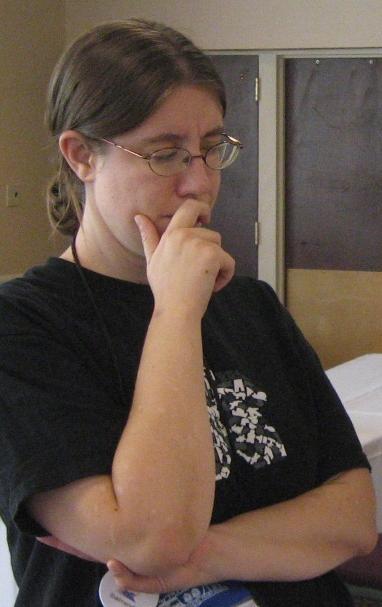
Nancy Foasberg, MA, MSLS is a humanities librarian and coordinator of library instruction at Queens College, CUNY. She is interested in pedagogy, technology, open access, and critical librarianship. She regularly participates (or at least lurks!) in #critlib. She spends most of the rest of her time playing board games.
 Joanna R. Herron is a double major in psychology and mathematics, a tutor in the math lab, and President of the SUNY New Paltz chapter of SIAM (the Society for Industrial and Applied Mathematics). She also enjoys cooking/baking and spending time outdoors in her free time.
Joanna R. Herron is a double major in psychology and mathematics, a tutor in the math lab, and President of the SUNY New Paltz chapter of SIAM (the Society for Industrial and Applied Mathematics). She also enjoys cooking/baking and spending time outdoors in her free time.
Troy Innocent, PhD explores connections and multiplicity in his works of design, sculpture, animation, sound and installation. His methods of multiplatform storytelling and relationships between objects and their surroundings create their own world, a game that viewers can play. His most recent works are urban art environments: an interactive sculpture garden in the Docklands and Urban Codemakers, a game that reinvents the history of Melbourne. Innocent is currently Course Director of Games and Interactivity at Swinburne University of Technology, and is represented by Anna Pappas Gallery.
 Ellen Jameson is a researcher on the Cambridge Mathematics project in UCLES at the University of Cambridge and a PhD student in education and business at Trinity College Dublin. She has studied and designed environmental science games for classrooms at IU’s Center for Research and Technology and at Filament Games, and her interests include the potential for games to contribute to deeper understanding and richer discussion of social-ecological systems.
Ellen Jameson is a researcher on the Cambridge Mathematics project in UCLES at the University of Cambridge and a PhD student in education and business at Trinity College Dublin. She has studied and designed environmental science games for classrooms at IU’s Center for Research and Technology and at Filament Games, and her interests include the potential for games to contribute to deeper understanding and richer discussion of social-ecological systems.
 Antonnet Johnson is a PhD candidate in Rhetoric, Composition, and the Teaching of English at the University of Arizona (UA). Her research and teaching interests include game studies, rhetoric in popular culture, fan studies, play, and professional and technical writing. She is also co-founder and Director of the UA Usability and Play Testing Lab, which specializes in research and testing on the design and usability of technological, instructional, and artistic prototypes.
Antonnet Johnson is a PhD candidate in Rhetoric, Composition, and the Teaching of English at the University of Arizona (UA). Her research and teaching interests include game studies, rhetoric in popular culture, fan studies, play, and professional and technical writing. She is also co-founder and Director of the UA Usability and Play Testing Lab, which specializes in research and testing on the design and usability of technological, instructional, and artistic prototypes.
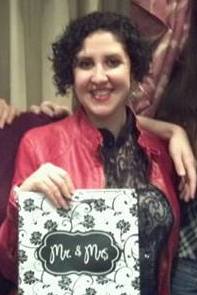 Katherine Castiello Jones is a PhD candidate in the Sociology department at the University of Massachusetts Amherst, where she has also completed a graduate certificate in Advanced Feminist Studies. Her interest in role-playing started in college with a game of Call of Cthulhu. Moving from player to game master and designer, Jones has been active in organizing Games on Demand as well as JiffyCon. She has also written and co-authored several live-action scenarios including All Hail the Pirate Queen!, Revived: A Support Group for the Partially Deceased, Cady Stanton’s Candyland with Julia Ellingboe, and Uwe Boll’s X-Mas Special with Evan Torner. Jones is also interested in how sociology can aid the study of analog games. She’s written for RPG = Role Playing Girl and her piece “Gary Alan Fine Revisited: RPG Research in the 21st Century” was published in Immersive Gameplay: Essays on Role-Playing Games and the Media.
Katherine Castiello Jones is a PhD candidate in the Sociology department at the University of Massachusetts Amherst, where she has also completed a graduate certificate in Advanced Feminist Studies. Her interest in role-playing started in college with a game of Call of Cthulhu. Moving from player to game master and designer, Jones has been active in organizing Games on Demand as well as JiffyCon. She has also written and co-authored several live-action scenarios including All Hail the Pirate Queen!, Revived: A Support Group for the Partially Deceased, Cady Stanton’s Candyland with Julia Ellingboe, and Uwe Boll’s X-Mas Special with Evan Torner. Jones is also interested in how sociology can aid the study of analog games. She’s written for RPG = Role Playing Girl and her piece “Gary Alan Fine Revisited: RPG Research in the 21st Century” was published in Immersive Gameplay: Essays on Role-Playing Games and the Media.
 Carlos Klimick, PhD holds a doctorate in literature and masters in Design from the Catholic University of Rio de Janeiro, his research focusing on ludonarratives, gamebooks and tabletop RPGs for educational purposes. Recent projects include using gamebooks to teach middle school as part of the National Strategy for Financial Education (ENEF), and using gamebooks and tabletop RPGs to develop competence and knowledge at the undergraduate level.
Carlos Klimick, PhD holds a doctorate in literature and masters in Design from the Catholic University of Rio de Janeiro, his research focusing on ludonarratives, gamebooks and tabletop RPGs for educational purposes. Recent projects include using gamebooks to teach middle school as part of the National Strategy for Financial Education (ENEF), and using gamebooks and tabletop RPGs to develop competence and knowledge at the undergraduate level.
 Elizabeth LaPensée, PhD expresses herself through writing, design, and art in games, comics, and animation. She is Anishinaabe, Métis, and Irish, which informs the emphasis of her work. Most recently, she designed and programmed Invaders (2015), a remix of the arcade classic Space Invaders inspired from art by Steven Paul Judd. She also designed The Gift of Food (2014), a board game for the Northwest Indian College about Northwest Native traditional foods. Continuing her work with communities, she co-designed Tulalip Tribes: Connected to the Land: Gathering Native Foods (2014), a suite of games about Tulalip traditional foods for the Oregon Museum of Science and Industry. Her dissertation in Interactive Arts and Technology from Simon Fraser University in British Columbia shares experiences from the Indigenous social impact game Survivance (2011), which encourages ongoing healing through storytelling and creating art. Continuing this work in wellbeing, she is currently the Postdoctoral Associate for the University of Minnesota’s Research for Indigenous Community Health Center.
Elizabeth LaPensée, PhD expresses herself through writing, design, and art in games, comics, and animation. She is Anishinaabe, Métis, and Irish, which informs the emphasis of her work. Most recently, she designed and programmed Invaders (2015), a remix of the arcade classic Space Invaders inspired from art by Steven Paul Judd. She also designed The Gift of Food (2014), a board game for the Northwest Indian College about Northwest Native traditional foods. Continuing her work with communities, she co-designed Tulalip Tribes: Connected to the Land: Gathering Native Foods (2014), a suite of games about Tulalip traditional foods for the Oregon Museum of Science and Industry. Her dissertation in Interactive Arts and Technology from Simon Fraser University in British Columbia shares experiences from the Indigenous social impact game Survivance (2011), which encourages ongoing healing through storytelling and creating art. Continuing this work in wellbeing, she is currently the Postdoctoral Associate for the University of Minnesota’s Research for Indigenous Community Health Center.
 Evan W. Lauteria is a PhD student in Sociology at the University of California-Davis, where he works in the UC-Davis “ModLab,” an interdisciplinary digital humanities and video games research lab. His primary research interests include production of culture, formal organizations, video games, gender and sexuality, and comparative-historical methods. He is the co-editor of Rated M for Mature: Sex and Sexuality in Video Games (Bloomsbury Publishing, 2015), and his current research is a comparative-historical analysis of Nintendo and Sega’s business practices in the 1980s and 90s.
Evan W. Lauteria is a PhD student in Sociology at the University of California-Davis, where he works in the UC-Davis “ModLab,” an interdisciplinary digital humanities and video games research lab. His primary research interests include production of culture, formal organizations, video games, gender and sexuality, and comparative-historical methods. He is the co-editor of Rated M for Mature: Sex and Sexuality in Video Games (Bloomsbury Publishing, 2015), and his current research is a comparative-historical analysis of Nintendo and Sega’s business practices in the 1980s and 90s.
 Eddie Lohmeyer is a PhD student in the Communication, Rhetoric, and Digital Media program at North Carolina State University. His research interests explore the intersections between affect theory, animation, and histories and theories of the avant-garde. He is also a practicing digital artist that uses his work to explore bodily, affective relationships with animation in a broader media spectrum including video games.
Eddie Lohmeyer is a PhD student in the Communication, Rhetoric, and Digital Media program at North Carolina State University. His research interests explore the intersections between affect theory, animation, and histories and theories of the avant-garde. He is also a practicing digital artist that uses his work to explore bodily, affective relationships with animation in a broader media spectrum including video games.
 Doug Maynard, PhD is Professor of Psychology at the State University of New York at New Paltz. His scholarship lies at the intersection between game studies and positive psychology, and revolves broadly around the role of play, playfulness, and gaming in adults. He is Director of the Positive Play Lab, where he and his students conduct empirical research using a variety of methodologies to investigate the impact of analog game experiences upon emotional states, social connectedness, and well-being. Outside of academia, he co-organizes a local game designers guild and volunteers at his local library, introducing kids to modern board games.
Doug Maynard, PhD is Professor of Psychology at the State University of New York at New Paltz. His scholarship lies at the intersection between game studies and positive psychology, and revolves broadly around the role of play, playfulness, and gaming in adults. He is Director of the Positive Play Lab, where he and his students conduct empirical research using a variety of methodologies to investigate the impact of analog game experiences upon emotional states, social connectedness, and well-being. Outside of academia, he co-organizes a local game designers guild and volunteers at his local library, introducing kids to modern board games.
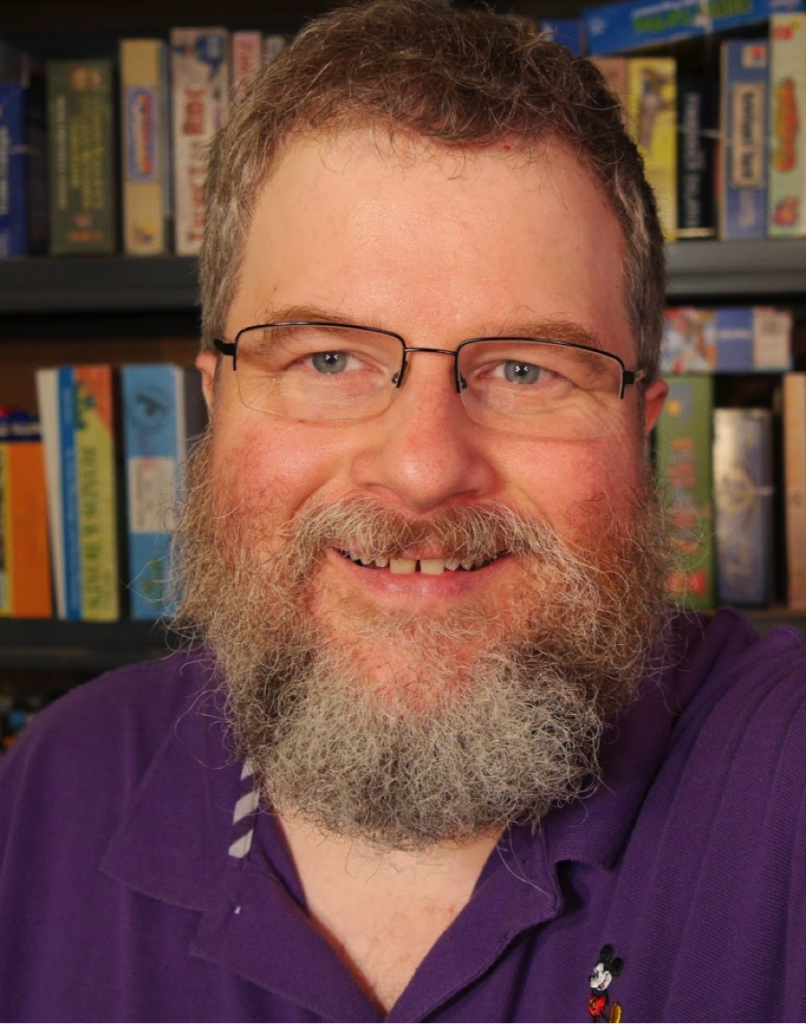 Scott Nicholson, PhD (@snicholson) is Professor and Director of the Game Design and Development program at Wilfrid Laurier University in Brantford, Ontario, Canada. He also directs the Brantford Games Network and the BGNlab, which brings together students, gamers, community members, game companies, and organizations that support learning to create transformative games. His primary research areas are escape rooms and other live-action games that bring people together for educational or team-building purposes and other forms of meaningful gamification. He was also the creator and host of Board Games with Scott, the first web-based video series about board games, and was the designer of the board games Tulipmania 1637 and Going, Going, Gone.
Scott Nicholson, PhD (@snicholson) is Professor and Director of the Game Design and Development program at Wilfrid Laurier University in Brantford, Ontario, Canada. He also directs the Brantford Games Network and the BGNlab, which brings together students, gamers, community members, game companies, and organizations that support learning to create transformative games. His primary research areas are escape rooms and other live-action games that bring people together for educational or team-building purposes and other forms of meaningful gamification. He was also the creator and host of Board Games with Scott, the first web-based video series about board games, and was the designer of the board games Tulipmania 1637 and Going, Going, Gone.
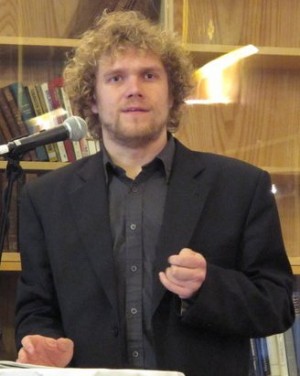 Martin Nielsen is a larp designer and event organizer from Oslo Norway. He has been a key contributor to Fantasiforbundet’s projects in Lebanon, Belarus, and Palestine as well as meeting places such as Grenselandet and Knutepunkt in addition to The Larpwriter Summer School. As his dayjob, he is the manager of Alibier AS, a company making educational larps.
Martin Nielsen is a larp designer and event organizer from Oslo Norway. He has been a key contributor to Fantasiforbundet’s projects in Lebanon, Belarus, and Palestine as well as meeting places such as Grenselandet and Knutepunkt in addition to The Larpwriter Summer School. As his dayjob, he is the manager of Alibier AS, a company making educational larps.
 David Phelps is currently pursuing his PhD in the Learning Sciences at the University of Washington. As an educational researcher he studies the ways in which young students develop mathematical modeling practices and learn to reason across difference as they collaboratively puzzle through simple yet deep board games. As a game designer he creates original games that students of all ages find easy to learn, quick to play, yet challenging to master. Taken together, he designs game-based learning environments that invite young students to have fun playing with mathematical and philosophical concepts. David has been fortunate enough to present his research findings and game designs with colleagues in such venues as Interaction Design and Children, Philosophy for Children, Simulation and Gaming, Philosophy of Education Society, National Art Education Association and NASAGA.
David Phelps is currently pursuing his PhD in the Learning Sciences at the University of Washington. As an educational researcher he studies the ways in which young students develop mathematical modeling practices and learn to reason across difference as they collaboratively puzzle through simple yet deep board games. As a game designer he creates original games that students of all ages find easy to learn, quick to play, yet challenging to master. Taken together, he designs game-based learning environments that invite young students to have fun playing with mathematical and philosophical concepts. David has been fortunate enough to present his research findings and game designs with colleagues in such venues as Interaction Design and Children, Philosophy for Children, Simulation and Gaming, Philosophy of Education Society, National Art Education Association and NASAGA.
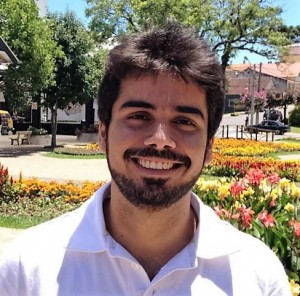 Rian Rezende, MA is a professor in the Arts and Design Department at Pontifical Catholic University of Rio de Janeiro (PUC-Rio). He is a social scientist and designer. He completed his B.S. in social sciences at Federal University of Rio de Janeiro, his M.A degree in Design at PUC-Rio, and he is currently doing his PhD at Arts and Design Department PUC-Rio. He is the founder of 5D Magic and one of the creators of Wonder Cards, a card game about project creation that explores the senses and imagination. His studies explore innovative methodology and thinking through the construction of experiences, artifacts and spaces that combine methods, games, narrative, imagination, magic and design.
Rian Rezende, MA is a professor in the Arts and Design Department at Pontifical Catholic University of Rio de Janeiro (PUC-Rio). He is a social scientist and designer. He completed his B.S. in social sciences at Federal University of Rio de Janeiro, his M.A degree in Design at PUC-Rio, and he is currently doing his PhD at Arts and Design Department PUC-Rio. He is the founder of 5D Magic and one of the creators of Wonder Cards, a card game about project creation that explores the senses and imagination. His studies explore innovative methodology and thinking through the construction of experiences, artifacts and spaces that combine methods, games, narrative, imagination, magic and design.
 William Robinson is a PhD candidate in the Humanities program at Concordia University. He is on the board of the Digital Games Research Association and an active member of the Center for Technoculture, Art and Games, where he completed his Master’s thesis on the aesthetics of game play in 2012. His theoretical work focuses on serious game design, the political-economy of game creation, media archaeology, digital humanities, e-sports, toxic gamer culture and procedural rhetoric. His art practice deploys strategy games as political arguments. His doctoral work on Montreal’s early 20th century labour movements explores the possibilities for game design, as historiographical research-creation.
William Robinson is a PhD candidate in the Humanities program at Concordia University. He is on the board of the Digital Games Research Association and an active member of the Center for Technoculture, Art and Games, where he completed his Master’s thesis on the aesthetics of game play in 2012. His theoretical work focuses on serious game design, the political-economy of game creation, media archaeology, digital humanities, e-sports, toxic gamer culture and procedural rhetoric. His art practice deploys strategy games as political arguments. His doctoral work on Montreal’s early 20th century labour movements explores the possibilities for game design, as historiographical research-creation.
 Emily Sheepy is currently pursuing a PhD in Education with a specialization in Educational Technology at Concordia University in Montréal, Québec. She studied Educational Technology at Concordia University (MA, 2015), and Psychology/Cognitive Science at the University of Waterloo (BSc, 2011). Emily’s research interest is in the evaluation of educational games, examining how design features and patterns of interaction influence players’ mental models and learning outcomes.
Emily Sheepy is currently pursuing a PhD in Education with a specialization in Educational Technology at Concordia University in Montréal, Québec. She studied Educational Technology at Concordia University (MA, 2015), and Psychology/Cognitive Science at the University of Waterloo (BSc, 2011). Emily’s research interest is in the evaluation of educational games, examining how design features and patterns of interaction influence players’ mental models and learning outcomes.
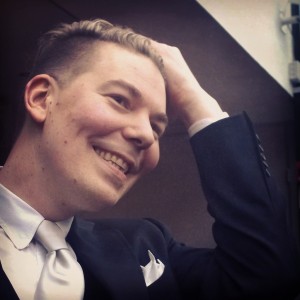 Jaakko Stenros, PhD is a game and play researcher at the Game Research
Jaakko Stenros, PhD is a game and play researcher at the Game Research
Lab (University of Tampere). He has published five books and over 50
articles and reports and has taught game studies and Internet studies
for almost a decade. He is currently working on understanding and
documenting adult play and uncovering the aesthetics of social play, but his research interests include norm-defying play, role-playing games, pervasive games, and playfulness. He has also collaborated with artists and designers to create ludic experiences. He lives in Helsinki, Finland.
 Jan Švelch is a PhD candidate at the Institute of Communication Studies and Journalism at Charles University in Prague. He received his BA and MA in Journalism and Media Studies. His research focuses on video game paratexts, glitches, fan communities and fan cultures. His thesis will explore the reception of various paratexts to analog and digital games. Besides research, he works as a freelance journalist covering video games for various Czech magazines. He can be reached at honza <at> svelch.com and some of his texts can be found at his blog http://videogamedelver.blogspot.cz/.
Jan Švelch is a PhD candidate at the Institute of Communication Studies and Journalism at Charles University in Prague. He received his BA and MA in Journalism and Media Studies. His research focuses on video game paratexts, glitches, fan communities and fan cultures. His thesis will explore the reception of various paratexts to analog and digital games. Besides research, he works as a freelance journalist covering video games for various Czech magazines. He can be reached at honza <at> svelch.com and some of his texts can be found at his blog http://videogamedelver.blogspot.cz/.
 Cole Wehrle is a PhD candidate at the University of Texas at Austin where he has taught courses on subjects as varied as video games, film, and romantic poetry. Most of his research focuses on the relationship between the British Empire and the Victorian novel and how narratives were able to make the world seem like a smaller and more knowable place. He served as a design specialist for the Digital Writing and Research Lab at UT and is the co-editor of Culture Bytes Back, a website that features articles and podcasts on game criticism. He is also a published board game designer. His first design, Pax Pamir, has been translated into five languages and was nominated for the 2015 Golden Geek Award, which is not bad for a game about 1820s Afghanistan. He has finished subsequent games on the nineteenth-century opium trade, e-sports, and perils of managing a boarding school.
Cole Wehrle is a PhD candidate at the University of Texas at Austin where he has taught courses on subjects as varied as video games, film, and romantic poetry. Most of his research focuses on the relationship between the British Empire and the Victorian novel and how narratives were able to make the world seem like a smaller and more knowable place. He served as a design specialist for the Digital Writing and Research Lab at UT and is the co-editor of Culture Bytes Back, a website that features articles and podcasts on game criticism. He is also a published board game designer. His first design, Pax Pamir, has been translated into five languages and was nominated for the 2015 Golden Geek Award, which is not bad for a game about 1820s Afghanistan. He has finished subsequent games on the nineteenth-century opium trade, e-sports, and perils of managing a boarding school.

